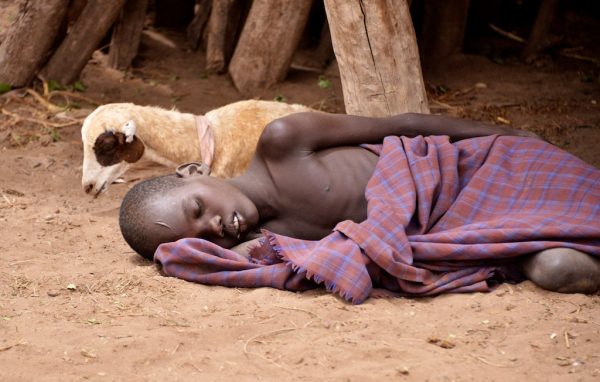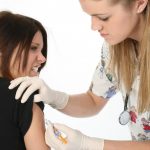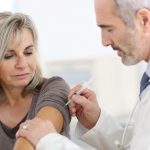
Mainstream media pushing malaria vaccine while refusing to mention that wormwood herb has a 100% cure rate
Monday, May 08, 2017 by Tracey Watson
http://www.cdc.news/2017-05-08-mainstream-media-pushing-malaria-vaccine-while-refusing-to-mention-that-wormwood-herb-has-a-100-cure-rate-for-malaria.html

Though there is a natural cure for malaria that has been used to successfully treat this disease in the Amazon, China and Africa for thousands of years, it is not this cure that is making headlines internationally, but rather a vaccine produced by GlaxoSmithKline that will be tested in Malawi, Kenya and Ghana in 2018.
The vaccine will be tested on over 120,000 infected children between the ages of 5 and 17 months – the age group most affected by malaria. The World Health Organization (WHO) is claiming that this vaccine will save tens of thousands of lives, reducing the incidence of malaria in this age group by 40 percent, reducing the number of severely affected patients by a third, and lowering the number of complications resulting in hospitalization and other interventions significantly.
There is no denying that malaria is a devastating disease. Over 212 million people are infected each year, and for close to half a million of them – mostly children – it proves to be fatal.
Nonetheless, is a vaccine really the best solution? Vaccines are never 100 percent effective, even if taken exactly as prescribed. Some experts have voiced concerns about the likelihood that rural people in third world countries will be able to complete the required course of four shots that make up the RTS,S vaccine (also known as Mosquirix). The vaccine is designed to be taken once a month for three months, and then the fourth, and most important dose, is taken 18 months later. It is highly unlikely that all patients will complete the full course of treatment. And having been vaccinated – in some cases not fully – many of these people may become lax about other preventative measures like the use of mosquito nets and insecticides. These measures were a large part of the reason that the number of malaria deaths dropped by 62 percent between 2000 and 2015, and if people stopped using them, the vaccine could actually make the malaria problem significantly worse.
And what of potential side effects? When vaccines and other medications get tested in obscure developing countries it is very easy to sweep undesirable side effects under the rug in the interests of lining Big Pharma’s pockets. After all, there are billions of people living in the countries that are plagued by malaria, and there’s an awful lot of money to be made with this vaccine.
And speaking of money, who will pay for these vaccines? Vaccine development is a costly process, and the pharmaceutical companies are in it to make money. So where are these mostly poor people going to get the money to pay for such treatment?
The WHO’s stated goal is to eradicate malaria by 2040. Though this may be a lofty ambition, it is going to take a lot more than this vaccine to achieve it. The parasites of three of the five types of malaria have developed resistance to the Artemisinin Combination Therapies (ACTs) used to treat the disease, and drug-resistant malaria is becoming widespread. Something better than a vaccine is needed, and is actually already available. (RELATED: Discover natural cures for a myriad of illnesses at Cures.news)
A study published in the journal Phytomedicine describes how the Artemisia annua plant, commonly known as sweet wormwood or sweet annie, saved the lives of 18 patients with drug-resistant malaria, even after nothing else worked.
The Congolese patients, aged between 14 months and 60 years, were exhibiting symptoms ranging from loss of consciousness to trouble breathing and convulsions, among others. When they failed to respond to intravenous treatment with an ACT, their doctors decided to try the dried leaves of the Artemisia annua plant as a last resort. After only five days of the treatment, all 18 patients were fully recovered, and blood tests revealed that absolutely no parasites remained in their blood.
This treatment is freely available to all, and no complicated drugs or injections are required. Pamela Weathers, the study’s lead author, noted, “If you eat the dried leaves of the plant, it works just as well or better than the pure drug.”
So, why the risky new vaccine when an inexpensive cure with a 100 percent success rate already exists?
Sources:
Tagged Under: Tags: Malaria, malaria vaccine, Mosquirix, natural cures, RTS-S vaccine, sweet annie, sweet wormwood




